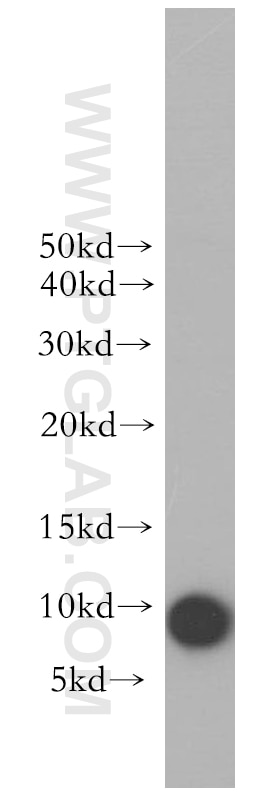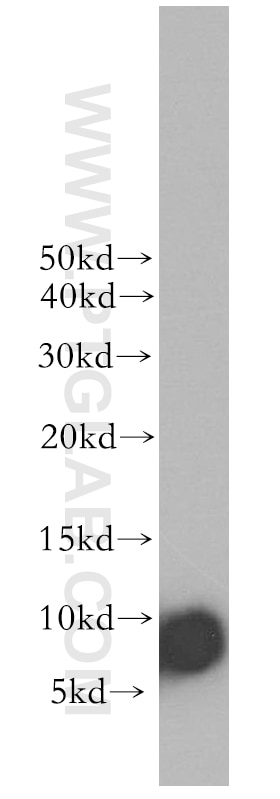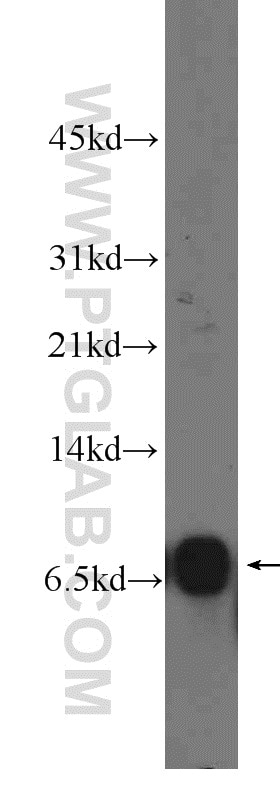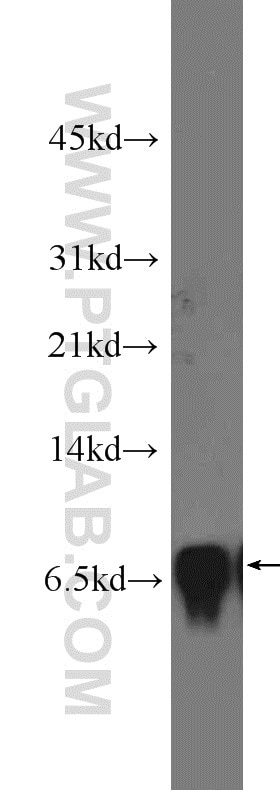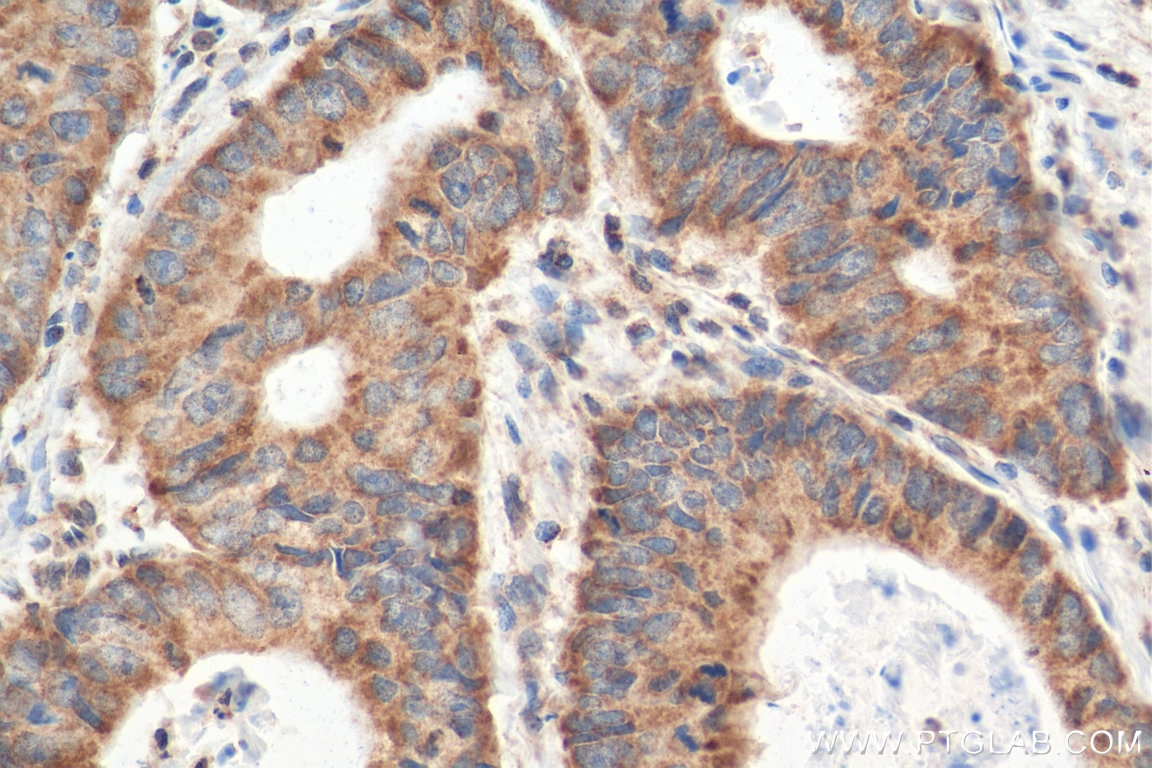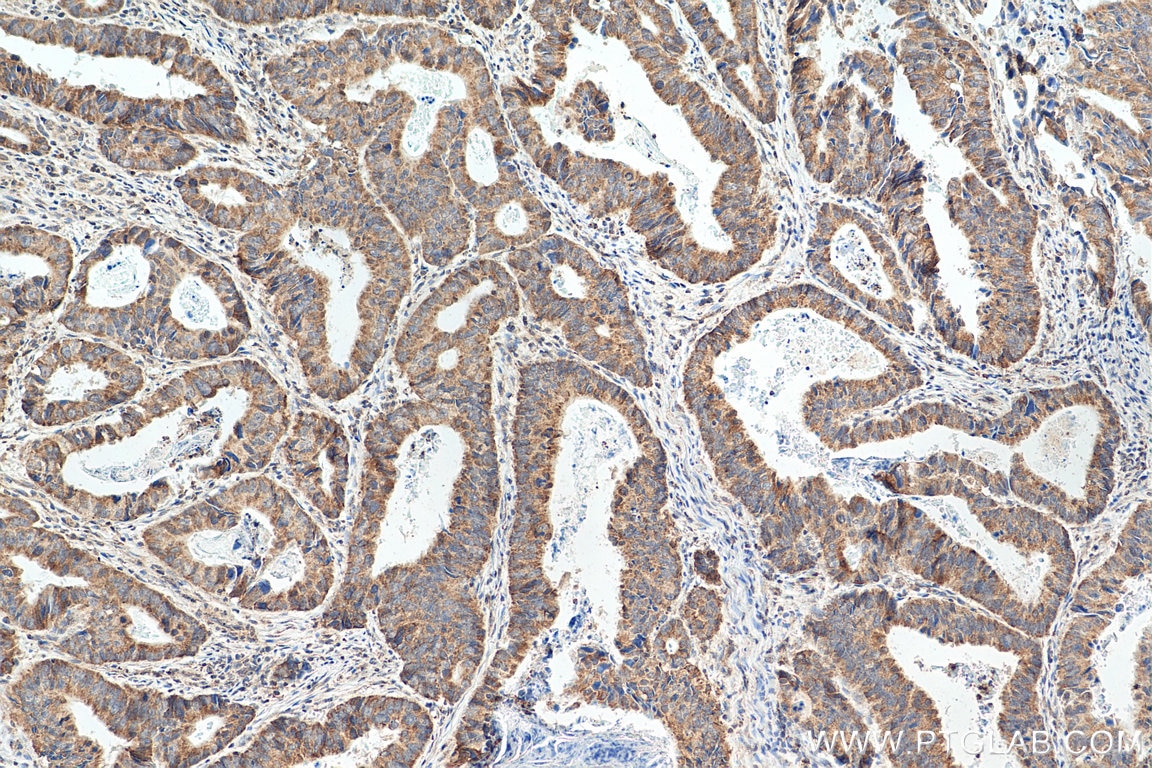Tested Applications
| Positive WB detected in | human spleen tissue, Jurkat cells, mouse spleen tissue, PC-3 cells |
| Positive IHC detected in | human colon cancer tissue Note: suggested antigen retrieval with TE buffer pH 9.0; (*) Alternatively, antigen retrieval may be performed with citrate buffer pH 6.0 |
Recommended dilution
| Application | Dilution |
|---|---|
| Western Blot (WB) | WB : 1:500-1:1000 |
| Immunohistochemistry (IHC) | IHC : 1:50-1:500 |
| It is recommended that this reagent should be titrated in each testing system to obtain optimal results. | |
| Sample-dependent, Check data in validation data gallery. | |
Published Applications
| WB | See 3 publications below |
| IHC | See 4 publications below |
| IF | See 2 publications below |
Product Information
18214-1-AP targets CCL28 in WB, IHC, IF, ELISA applications and shows reactivity with human, mouse samples.
| Tested Reactivity | human, mouse |
| Cited Reactivity | human, mouse, rat |
| Host / Isotype | Rabbit / IgG |
| Class | Polyclonal |
| Type | Antibody |
| Immunogen | CCL28 fusion protein Ag12920 Predict reactive species |
| Full Name | chemokine (C-C motif) ligand 28 |
| Calculated Molecular Weight | 127 aa, 14 kDa |
| Observed Molecular Weight | 8 kDa-9 kDa |
| GenBank Accession Number | BC069532 |
| Gene Symbol | CCL28 |
| Gene ID (NCBI) | 56477 |
| RRID | AB_2262251 |
| Conjugate | Unconjugated |
| Form | Liquid |
| Purification Method | Antigen affinity purification |
| UNIPROT ID | Q9NRJ3 |
| Storage Buffer | PBS with 0.02% sodium azide and 50% glycerol, pH 7.3. |
| Storage Conditions | Store at -20°C. Stable for one year after shipment. Aliquoting is unnecessary for -20oC storage. 20ul sizes contain 0.1% BSA. |
Background Information
CCL28, also named as SCYA28, CCK1 and MEC, belongs to the intercrine beta (chemokine CC) family. It has chemotactic activity for resting CD4, CD8 T-cells and eosinophils. CCL28 binds to CCR3 and CCR10 and induces calcium mobilization in a dose-dependent manner. CCL28 is expressed in a variety of human and mouse tissues, and it appears to be predominantly produced by epithelial cells. It is produced by epithelial cells of these tissues suggesting that this chemokine can play an important role by linking homing mechanisms between the gut, nasal mucosa and mammary gland (MG). In WB test, CCL28 is 14kd and 8-9kd(a putatively to a degradation fragment).
Protocols
| Product Specific Protocols | |
|---|---|
| WB protocol for CCL28 antibody 18214-1-AP | Download protocol |
| IHC protocol for CCL28 antibody 18214-1-AP | Download protocol |
| FC protocol for CCL28 antibody 18214-1-AP | Download protocol |
| Standard Protocols | |
|---|---|
| Click here to view our Standard Protocols |
Publications
| Species | Application | Title |
|---|---|---|
Oncol Rep CCL28 promotes breast cancer growth and metastasis through MAPK-mediated cellular anti-apoptosis and pro-metastasis. | ||
Mol Med Rep Knockdown of CCL28 inhibits endometriosis stromal cell proliferation and invasion via ERK signaling pathway inactivation | ||
Int Immunopharmacol IL-17D affects the chemokines and chemokine receptors of intestinal epithelial cells under hyperoxia | ||
Transl Oncol Transcriptionally activates CCL28 expression to inhibit M2 polarization of macrophages and prevent immune escape in colorectal cancer cells | ||
Discov Oncol CCL28 promotes progression of hepatocellular carcinoma through PDGFD-regulated MMP9 and VEGFA pathways | ||
J Exp Clin Cancer Res Pericytes recruited by CCL28 promote vascular normalization after anti-angiogenesis therapy through RA/RXRA/ANGPT1 pathway in lung adenocarcinoma |
